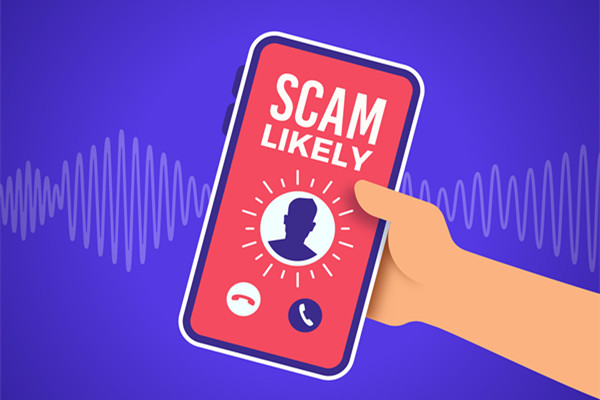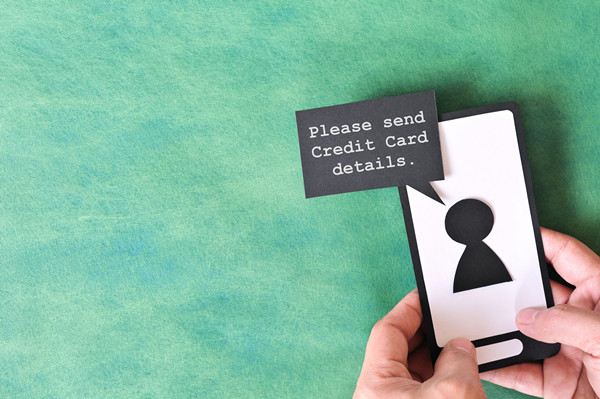Anti-fraud tips for international students
Studying abroad offers countless benefits – and while it's rare to fall victim to international student scams, it's crucial to be aware of potential dangers and recognize THE warning signs. Read these tips to help you avoid the most common scams targeting students like you.

1. Congratulations, you have won a prize!
Scammers send random text messages, emails, or pop-up windows on websites, announcing fake prizes for lucky QQ numbers, game accounts, etc. For instance: "Congratulations! You've been randomly selected as the second prize winner in the Golden Egg Smashing event, winning 58,000 yuan ($8,135) and a laptop. Please call: 40012345678 or visit www.123456.com to claim your prize, activation code 2375."
Students who follow these instructions and visit the website see fake winner lists and notary information, then are asked to pay taxes, notarization fees, handling fees, etc., resulting in a financial loss.
Scammers exploit the greed of victims. Be skeptical of unexpected "windfalls" to avoid falling prey to such schemes.
2. Landlord requests rent transfers
Scammers send mass texts to targeted groups, such as: "Hello! I am the landlord, my phone number has changed, please transfer the rent to my wife's ICBC card: 6215...". This broad approach often coincides with students about to transfer rent, leading them to mistakenly send money to the scammer's account.
Be cautious of random messages requesting money. When renting, use reputable real estate agencies or pay the landlord directly. Always confirm any rent payment requests with the landlord. Report scam messages to 12110.
3. Parcel with prohibited items
Scammers send messages like: "Reminder: You have a package that cannot be delivered due to an unclear address. Please contact the post office at 021-XXXX." When victims call, they are told the package contains drugs or prohibited items and they must contact the police. The scammer, posing as police, claims the victim is involved in criminal activities and must pay a security deposit to avoid legal consequences.
Remember, police will never collect security deposits through personal accounts. Verify such claims directly with the post office.

4. You are suspected of money laundering
Scammers impersonate police officers, prosecutors, or judges, claiming the victim's ID has been stolen or is involved in major crimes like money laundering. They urgently demand the freezing of all accounts and require the victim to transfer funds to a "supervisory account" to prove legitimacy. Through role-playing, they gradually lure the victim into transferring money.
Scammers exploit fear. When law enforcement must freeze an individual's bank account during a criminal investigation, they do so by liaising with relevant financial institutions based on a court-issued execution notice. Police will never instruct individuals to transfer funds to a purported designated account. If you encounter such a situation, call 110 immediately.
5. Credit card overdrafts
Scammers send messages posing as banks, such as: "Reminder: Your XX bank credit card was used for shopping at Walmart for 3988 yuan. Thank you for using our service. If you have any questions, please call customer service at 40012345678." When victims call, they are informed of credit card overdrafts, usage issues, or annual fees, possibly due to stolen IDs. The scammer instructs the victim to modify the bank card settings or encrypt them to resolve the issue, only to steal their account funds.
Don't panic or follow unsolicited instructions. Consult the relevant bank in person to resolve issues.
6. Bank password upgrade
Scammers send messages from numbers similar to the ICBC customer service hotline "95588", such as: "Your ICBC electronic password device will expire tomorrow, please log into our website www.icbcwd.com to upgrade!" Victims, believing the message is from ICBC, click the link and are redirected to a cloned "ICBC mobile banking (WAP)" website. Entering their bank details, they see a looping message while the scammer uses their information to perform transfers on the official ICBC website.
Familiarize yourself with official bank websites. Avoid logging into non-official sites, and verify suspicious messages by calling the bank's customer service hotline or dialing 110. Be vigilant against scams using other banks as well.

7. Online shopping low-price trap
Scammers create fake portals like "XX Discount Ticket Booking Website" or post fake ads on forums, offering goods like airline tickets or branded bags at unusually low prices. Victims are lured into transferring money via online banking. After the transfer, scammers claim the bank account needs verification or the goods are seized for smuggling, coaxing further transfers and threatening loss of both goods and the initial payment.
Shop on reputable websites, beware of phishing sites and safeguard digital certificates. Never disclose account details, passwords, or deposit amounts to others.
Other information
> Dial 110 for emergency calls, free from any payphone, landline, or mobile phone.
> Preferably use a landline to help the police quickly locate you.
Police station 24-hour hotlines:
East Shanghai (Hudong) University Police Station: 22027732
West Shanghai (Huxi) University Police Station: 22027759
Anti-fraud call: 96110
Starting Nov 1, 2020, the national anti-fraud center's unified warning number 96110 is operational in Shanghai.
A call from 96110 indicates a potential telecom network fraud attempt. Answer promptly!
Sources: Shanghai Municipal Public Security Bureau Cultural Protection Division, International Students Office of Fudan University